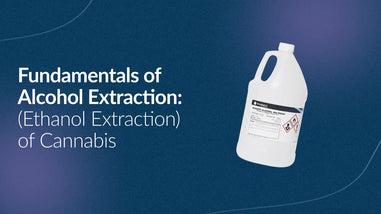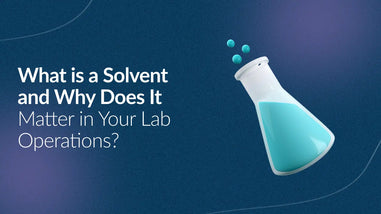- No products in the cart.
Water is a fundamental component of laboratory operations, playing a crucial role in various scientific processes and experiments. However, not all water is created equal when it comes to laboratory applications. Deionized water, also known as demineralized water, is a purified form of water that has undergone a process to remove impurities and ions. In this blog, we will explore the importance of deionized water in laboratory applications, highlighting its role in ensuring accurate and reliable results, protecting sensitive equipment, and maintaining the integrity of experiments.
DI water is important in laboratory applications because it is a pure form of water that does not contain any contaminants. This makes it ideal for use in a variety of laboratory procedures, including:

- Chemical analysis: DI water is used to prepare solutions for chemical analysis. The lack of ions in DI water ensures that the results of the analysis are accurate.
- Electrochemistry: DI water is used in electrochemical experiments. The lack of ions in DI water prevents the formation of electrical currents, which can interfere with the experiments.
- Microbiology: DI water is used to prepare media for growing bacteria and other microorganisms. The lack of ions in DI water helps to prevent the growth of unwanted bacteria.
- Cleaning: DI water is used to clean laboratory equipment. The lack of ions in DI water helps to remove any contaminants that may be on the equipment.
In addition to these specific applications, DI water is also used in a variety of other laboratory procedures. It is a versatile and important tool that can be used in a wide range of applications.
How is Deionized Water Made?
Deionized water is made through a process called ion exchange. Ion exchange resins are small beads that have a positive or negative charge. When these resins are placed in water, they attract the oppositely charged ions from the water. The ions are then exchanged with hydrogen or hydroxyl ions, which are the components of pure water.
There are two types of ion exchange resins: cation resins and anion resins. Cation resins have a positive charge and attract negatively charged ions. Anion resins have a negative charge and attract positively charged ions.
To make DI water, both cation and anion resins are used. The water is first passed through the cation resin, which removes the positively charged ions. The water is then passed through the anion resin, which removes the negatively charged ions. This process leaves behind pure water with no ions.
The Benefits of Using Deionized Water
There are many benefits to using deionized water in laboratory applications. Some of the benefits include:
- Accuracy: DI water is a pure form of water, which means that it does not contain any contaminants. This makes it ideal for use in chemical analysis, where even small amounts of contaminants can interfere with the results.
- Reliability: DI water is a reliable and consistent product. It is produced using a consistent process, which ensures that the quality of the water is always the same.
- Cost-effectiveness: DI water is a cost-effective option for laboratories. It is less expensive than other types of purified water, such as distilled water.
Conclusion
Deionized water is an important tool that can be used in a wide range of laboratory applications. It is a pure form of water that does not contain any contaminants. This makes it ideal for use in chemical analysis, electrochemistry, microbiology, and cleaning. DI water is a reliable and cost-effective option for laboratories.
For over 40 years, Lab Pro Inc. has been committed to delivering highest lab grade high purity waters such as deionized water, lab supplies, hand tools, lab equipment, reagents, distance learning kits, and cleanroom PPE apparel. Renowned by global medical device companies and laboratories, we ensure exceptional quality in every product. Contact us online or call 888-452-2776 to learn more. Discover top-notch lab supplies and elevate your experiments today!













































Having requirement of deionized water for biochemistry clinical laboratory
Having requirement of deionized water for biochemistry clinical laboratory